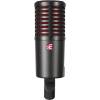Beliebte Filter: Anschluss
737 Ergebnisse entsprechen den Suchkriterien
-

ohne Endnote
MicW i436
- Typ: Handy-Mikrofon
- Richtcharakteristik: Omnidirektional (Kugel)
- Anschluss: Klinke (3,5 mm)
Zum Produkt
-

ohne Endnote
Shure Motiv MV5 + SRH240A
- Typ: Podcastmikrofon, Tischmikrofon
- Technologie: Kondensator
- Richtcharakteristik: Niere
-

Sehr gut
1,4
Deity V-Mic D4 Duo
- Typ: Kamera-Mikrofon
- Technologie: Kondensator
- Richtcharakteristik: Niere
-
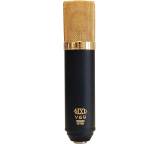
Gut
1,9
MXL Mikrofone V69M EDT
- Typ: Instrumentenmikrofon, Gesangsmikrofon
- Technologie: Kondensator
- Richtcharakteristik: Niere
Zum Produkt
-
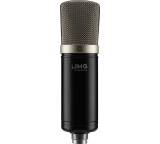
Sehr gut
1,5
IMG Stage Line ECMS-50USB
- Typ: Podcastmikrofon, Instrumentenmikrofon, Gesangsmikrofon
- Technologie: Kondensator
- Richtcharakteristik: Niere
Zum Produkt
-
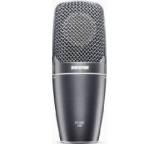
Gut
1,8
Shure PG42USB
- Typ: Gesangsmikrofon
- Technologie: Kondensator
- Richtcharakteristik: Niere
Zum Produkt
-
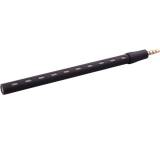
Sehr gut
1,4
MicW iShotgun
- Typ: Kamera-Mikrofon
- Technologie: Elektret, Kondensator
- Richtcharakteristik: Breite Niere
Zum Produkt
-

Gut
1,8
Samson Satellite
- Typ: Podcastmikrofon, Tischmikrofon
- Technologie: Elektret, Kondensator
- Richtcharakteristik: Bidirektional (Acht), Niere, Omnidirektional (Kugel)
-

Sehr gut
1,0
WeissKlang V17
- Typ: Instrumentenmikrofon, Gesangsmikrofon
- Technologie: Kondensator
- Richtcharakteristik: Niere
Zum Produkt
-

Gut
1,9
Samson C01UPRO
- Typ: Instrumentenmikrofon, Gesangsmikrofon
- Technologie: Kondensator
- Richtcharakteristik: Breite Niere
Zum Produkt
-

Gut
1,7
Beyerdynamic TG V50d
- Typ: Gesangsmikrofon
- Technologie: Dynamisch
- Richtcharakteristik: Niere
Zum Produkt
-

Sehr gut
1,5
Thomann The T.Bone SC 450
- Typ: Instrumentenmikrofon, Gesangsmikrofon
- Technologie: Kondensator
- Richtcharakteristik: Niere
Zum Produkt
-
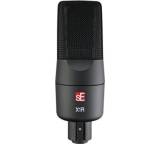
Sehr gut
1,2
SE Electronics X1R
- Typ: Instrumentenmikrofon, Gesangsmikrofon
- Technologie: Bändchen
- Richtcharakteristik: Bidirektional (Acht)
Zum Produkt
-

Gut
2,0
MicW iBoundary
- Typ: Handy-Mikrofon
- Richtcharakteristik: Omnidirektional (Kugel)
- Anschluss: Klinke (3,5 mm)
Zum Produkt
-

ohne Endnote
Lewitt DGT 650
- Typ: Podcastmikrofon, Tischmikrofon
- Technologie: Kondensator
- Richtcharakteristik: Niere
-

Sehr gut
1,2
Beyerdynamic MCE 82
- Typ: Instrumentenmikrofon
- Technologie: Elektret, Kondensator
- Richtcharakteristik: Stereo, Niere
Zum Produkt
-

Sehr gut
1,2
Electro-Voice ND76
- Typ: Gesangsmikrofon
- Technologie: Dynamisch
- Richtcharakteristik: Niere
Zum Produkt
-

Sehr gut
1,1
Audio-Technica BP 4025
- Typ: Kamera-Mikrofon
- Technologie: Kondensator
- Richtcharakteristik: Stereo, Niere
Zum Produkt
-

Sehr gut
1,0
Electro-Voice ND46
- Typ: Instrumentenmikrofon
- Technologie: Dynamisch
- Richtcharakteristik: Superniere
Zum Produkt
-

Gut
2,0
Rode Microphones SC6-L
- Typ: Handy-Mikrofon, Ansteckmikrofon
- Technologie: Kondensator
- Richtcharakteristik: Omnidirektional (Kugel)
-
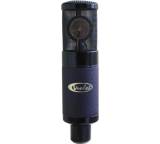
Gut
2,0
Violet Design The Atomic
- Typ: Instrumentenmikrofon, Gesangsmikrofon
- Technologie: Kondensator
- Richtcharakteristik: Niere
Zum Produkt
-

Gut
1,6
Blue Microphones Snowball
- Typ: Richtmikrofon
- Technologie: Kondensator
- Richtcharakteristik: Direktional (Keule), Niere, Omnidirektional (Kugel)
Zum Produkt
-

Gut
1,7
Beyerdynamic TG V90r
- Typ: Gesangsmikrofon
- Technologie: Bändchen
- Richtcharakteristik: Niere
Zum Produkt
-

Sehr gut
1,0
Electro-Voice ND44
- Typ: Instrumentenmikrofon
- Technologie: Dynamisch
- Richtcharakteristik: Niere
Zum Produkt
-

Gut
1,8
MXL Mikrofone 2006
- Typ: Instrumentenmikrofon, Gesangsmikrofon
- Technologie: Kondensator
- Richtcharakteristik: Niere
Zum Produkt
-

Sehr gut
1,5
IMG Stage Line ECMS-90
- Typ: Instrumentenmikrofon, Gesangsmikrofon
- Technologie: Kondensator
- Richtcharakteristik: Niere
Zum Produkt
-
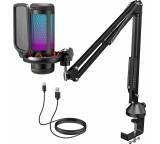
ohne Endnote
Tonor TC310+
- Typ: Podcastmikrofon
- Technologie: Kondensator
- Anschluss: USB
Zum Produkt
-

Sehr gut
1,0
Electro-Voice ND68
- Typ: Instrumentenmikrofon
- Technologie: Dynamisch
- Richtcharakteristik: Superniere
Zum Produkt
-

Gut
1,9
Samson C01U
- Typ: Instrumentenmikrofon
- Technologie: Kondensator
- Anschluss: USB
Zum Produkt
-
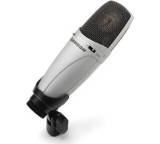
Sehr gut
1,0
-

ohne Endnote
Beyerdynamic TG V30d s
- Typ: Gesangsmikrofon
- Technologie: Dynamisch
- Richtcharakteristik: Superniere
Zum Produkt
-

ohne Endnote
Lewitt LCT 540 S
- Typ: Instrumentenmikrofon, Gesangsmikrofon
- Technologie: Kondensator
- Richtcharakteristik: Niere
Zum Produkt
-
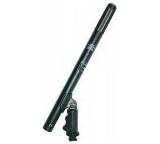
Befriedigend
3,0
Thomann The T.Bone EM-9600
- Typ: Kamera-Mikrofon, Reportermikrofon, Richtmikrofon, Gesangsmikrofon
- Technologie: Kondensator
- Richtcharakteristik: Superniere
Zum Produkt
-
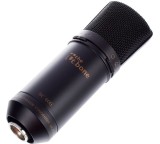
Sehr gut
1,0
Thomann The t.bone SC 600
- Typ: Instrumentenmikrofon, Gesangsmikrofon
- Richtcharakteristik: Niere, Omnidirektional (Kugel)
- Anschluss: XLR
Zum Produkt
-

Sehr gut
1,0
LD Systems WS 1G8 HHD2
- Typ: Funkmikrofon, Gesangsmikrofon
- Technologie: Dynamisch
- Richtcharakteristik: Niere
Zum Produkt
-

Befriedigend
3,0
SE Electronics Gemini II
- Typ: Instrumentenmikrofon, Gesangsmikrofon
- Technologie: Röhre
- Richtcharakteristik: Niere
Zum Produkt
-
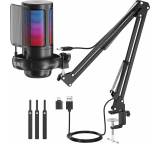
ohne Endnote
NJSJ ME6S mit Auslegerarm
- Typ: Podcastmikrofon
- Technologie: Kondensator
- Richtcharakteristik: Niere
Zum Produkt
-

Gut
2,5
MicW i266 Kit
- Typ: Handy-Mikrofon
- Technologie: Elektret, Kondensator
- Richtcharakteristik: Niere
Zum Produkt
-

Sehr gut
1,2
Telefunken Elektroakustik M80
- Typ: Gesangsmikrofon
- Technologie: Dynamisch
- Richtcharakteristik: Superniere
Zum Produkt




